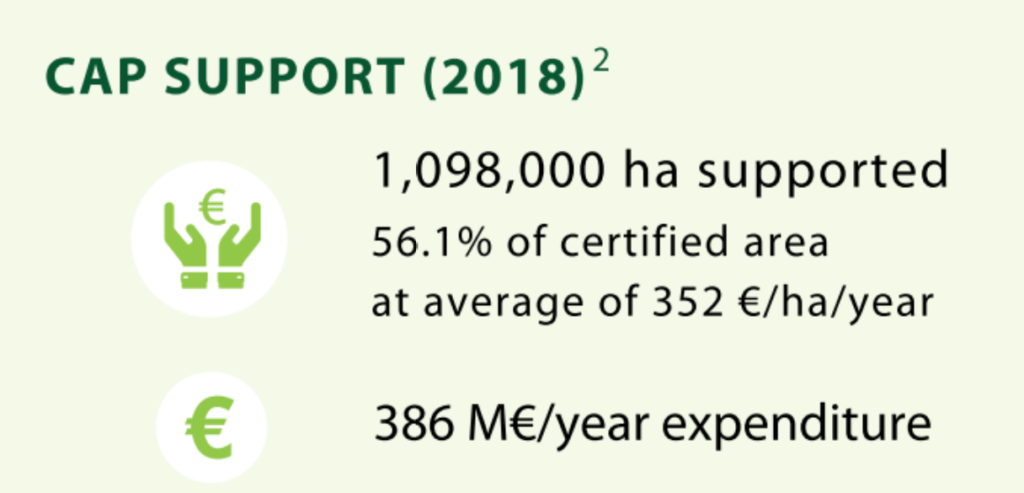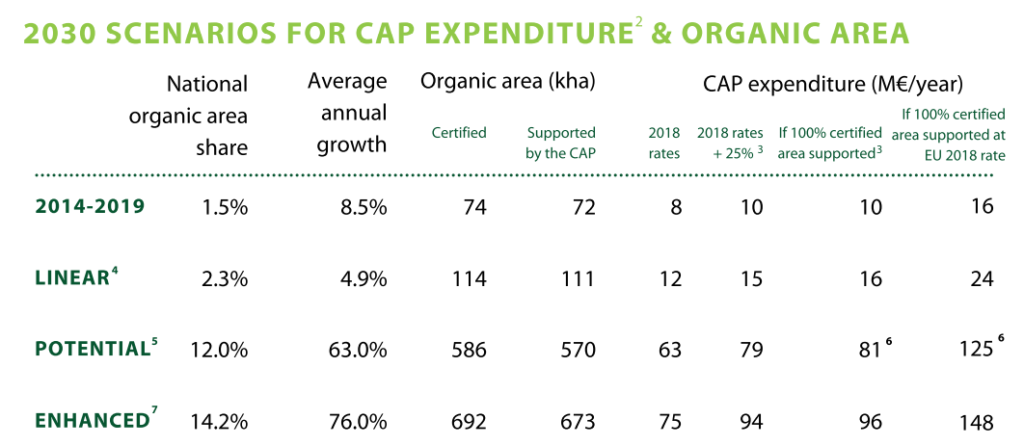Ireland’s expenditure on organic farming would require a 10-fold increase in order to help meet the European Union’s (EU) 25% organic-land target by 2030, a recently published report has found.
The report, from IFOAM Organics Europe, also recommended that, in Irelands case, organic farms should have priority access to agri-environment and eco-schemes to help achieve environmental objectives.
According to the research commissioned by IFOAM Organics Europe, the European Union needs to dedicate three to five times the current amount of Common Agricultural Policy (CAP) budget dedicated to conversion and maintenance of organic farming from 2023 onwards.

“But depending on their potential national target, baseline, and payments rates, in some cases, member states should dedicate 10 times more national budget to organic support measures,” according to Organics Europe.
Ireland fits in to this category.
Organic Ireland
According to the report, Prospects & Developments for Organic in National CAP Strategic Plans, the current organic land status in Ireland is 1.5% of the total agricultural land, or 73,952ha. This represents 0.05% of all EU agricultural land.
There are 1,725 organic farmers in Ireland and average farm sizes are 42.9ha comprised of:
- 4,319ha of annual crops and horticultural crops;
- 64ha of permanent crops;
- 69,323ha grassland.
The organics market in Ireland is worth €206m and there are 26 organic processors.
According to 2018 statistics featured in the Organics Europe report, 72,000ha, or 93.7% of certified organic land was supported by CAP, totalling €8m per year – €111/ha/year.

Based on the above scenarios, the report said that a 12% national target in Ireland by 2030 is challenging and would require 10 times the current expenditure.
But, if achieved, it would contribute 0.37% to the EU’s 25% target.
The report also states that, in Ireland’s case, CAP funds should be adequately deployed to support organic training, transition, and market development and promotion.
Jan Plagge, IFOAM Organics Europe’s president said: “Conventional farmers should be incentivised to transition to organic farming, and organic farmers should be properly rewarded for the public goods they deliver by producing quality food while protecting nature.
“Increased support to organic farming is a smart public policy tool to ensure that the next CAP will contribute to the Green Deal and to the Farm to Fork and Biodiversity Strategies targets.
“Achieving 25% organic land in the EU by 2030 will only be achievable if member states dedicate a much higher share of the CAP budget to organic conversion and maintenance compared to what is currently envisaged in most countries.”
